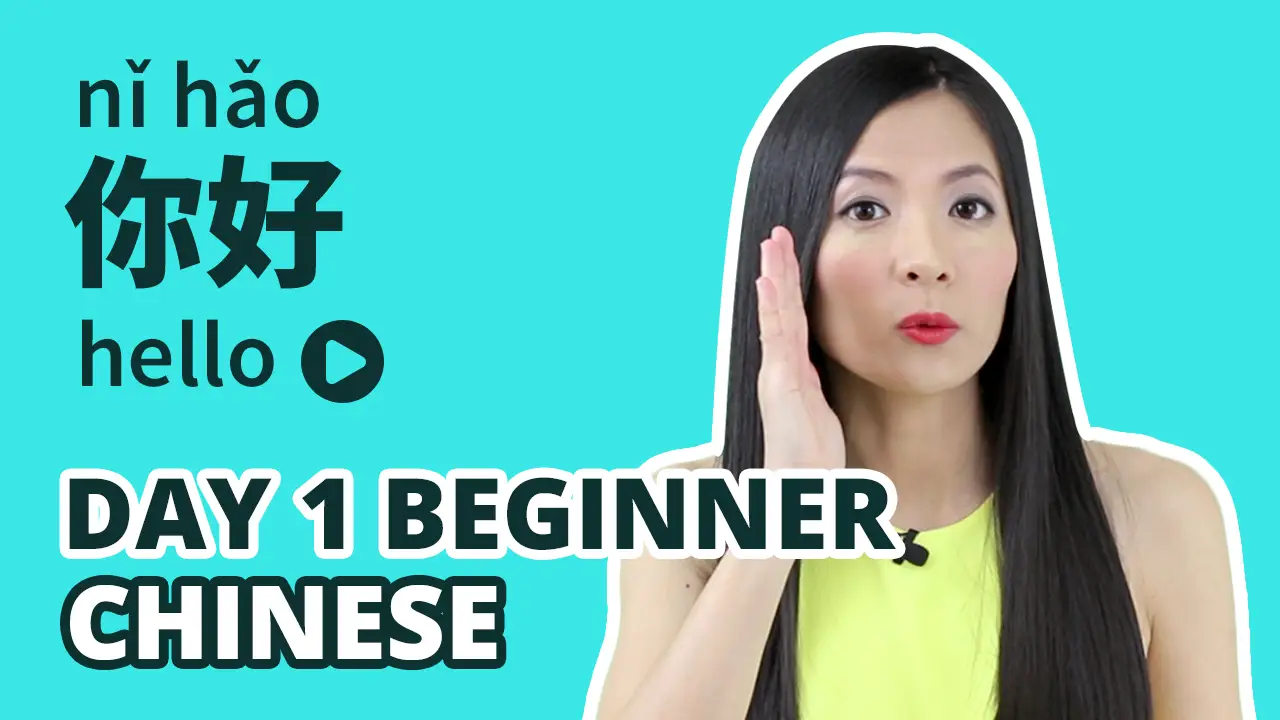Beginner Lesson 18.1 – Ask Which
VOCABULARY
GRAMMAR
Grammar 1: Ask Which in Chinese · HSK 1
nǎ 哪 which
哪 is the pronoun we use to ask which in Chinese. It cannot be followed directly by a noun. Instead, we need to follow this structure:
哪 + Measure Word + Noun
For example:
- nǎge rén
哪个人
which person - nǎwèi lǎoshī
哪位老师
which teacher
Grammar 2: Measure Word in Chinese (III)· HSK 1
zhè 这 this, nà 那 that, and nǎ 哪 which are all Pronouns in Chinese. When they are used before nouns, we need to follow this structure:
Pronoun (这/那/哪) + Measure Word + Noun
This is one of the most important usages of Measure Word in Chinese. Here are some examples:
| PINYIN | CHINESE | ENGLISH |
| zhège píngguǒ | 这个苹果 | this apple |
| nàge xīngqī | 那个星期 | that week |
| nǎge yuè | 哪个月 | which month |
| zhèwèi péngyou | 这位朋友 | this friend |
| nàwèi lǎoshī | 那位老师 | that teacher |
| nǎwèi tóngxué | 哪位同学 | which classmate |
| zhège 'érzi | 这个儿子 | this son |
| nàge nǚ'ér | 那个女儿 | that daughter |
| nǎge gēge | 哪个哥哥 | which big brother |
For these Nouns: 周, 天, 年, 这, 那 , 哪 can be directly used before them, with the Measure Word omitted:
| PINYIN | CHINESE | ENGLISH |
| zhèzhōu | 这周 | this week |
| nàtiān | 那天 | that day |
| nǎnián | 哪年 | which year |
This is because for 年(nián, year) and 天(tiān, day), we do not use any Measure Word before them. This is an exception. So we say 一年(yì nián, one year),一天(yì tiān, one day). However for 月(yuè, month), we do use the Measure Word 个. So we say 一个月(yí ge yuè)
NOTES: We can say nànián 那年 that year and nǎnián 哪年 which year, but we don't say zhènián 这年 for "this year" because we say jīnnián 今年.
Grammar 3: 同学 VS. 学生 in Chinese· HSK 1
In Chinese 学生 means student, while 同学 means classmate, basically people who take the same class with you. But sometimes 同学 can be used to address someone who appears to be a student. Generally, 学生 is the identity of being a student, and 同学 is either "your classmate", or the name or title you use to address someone that you believe to be a student, usually when (1) you are older and not a student yourself, or (2) you are also a student but not necessarily in the same class or school.
12 Comments
Leave a Reply
You must be logged in to post a comment.

Hi. I don’t understand how one of the sentences: “Na ge dong xi bu shi ni men de?” becomes a question without the question particle “ma”. Can anyone explain?
because they put ?, with ?, you know is a question. if you put “ma” it will be yes/not answer
I had the same doubt..
I think because 哪 is a question word
I’m a bit confused on the usage of 位 and 个. I thought 位 was when you are referring to people, but throughout the video you use 个 in front of student, teacher, classmate, etc, but use 位 in front of 小姐 and 先生. Are there certain exceptions to when you should use 位 in front of people?
I am not an expert but what I understood is that we use “wei” in front of people we want to show respect to.
I’m a bit late, but 位 is used to people you don’t know or want to respect, like your Teacher, or a random person in the street.
个 is in the context used for people that you know, like your parents, classmates, colleagues, and so on. While using 位 for your parents isn’t wrong or anything, it just sounds weird. Like calling your parents “sir”.
when you say together “tong” it seems you prononce “pong” instead of “tong” . If it is so , why this writing in pinyin ? And how can you know when you say thing “dong xi” if it is singular or plural ?
Hi, have you checked out our Pinyin Course yet? You can compare each Initials and Finals in a very detailed way. With Initials p and t, you can watch the lesson on “b p m f” vs. “d t n l” to see the differences. Also the Final -ong does not go after the Initial p so there is no “pong” sound in Chinese.
As for plural and singular, except for Personal Pronouns, nouns don’t change whether it is singular or plural.
So i went back to pinyin course ! Thanks
it is remarkable. If you close your eyes it absolutely has a “p” sound. I listened to it several times myself. the same goes for the audio button in the vocab list. it sounds like PONG not TONG. In the pinyin drils all the “T”s sound like “T”, so I don’t know why this one sounds this way. I will say “T”ONG anyway.
I was curious so I re-listened to the video and the vocab list audio with my eyes closed. I didn’t hear a “p” sound at all. I distinctly hear the “t” in both the video and the vocal list audio for “tong”.